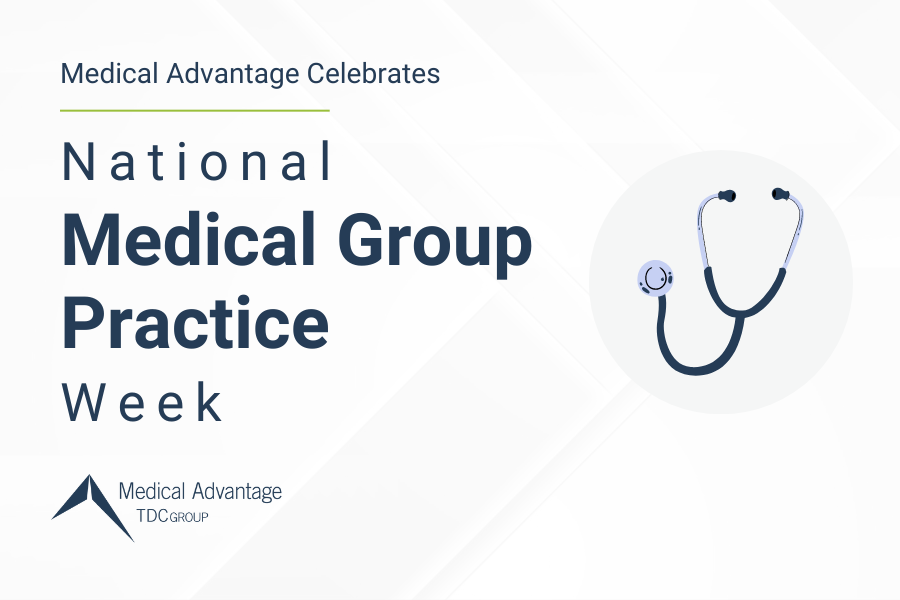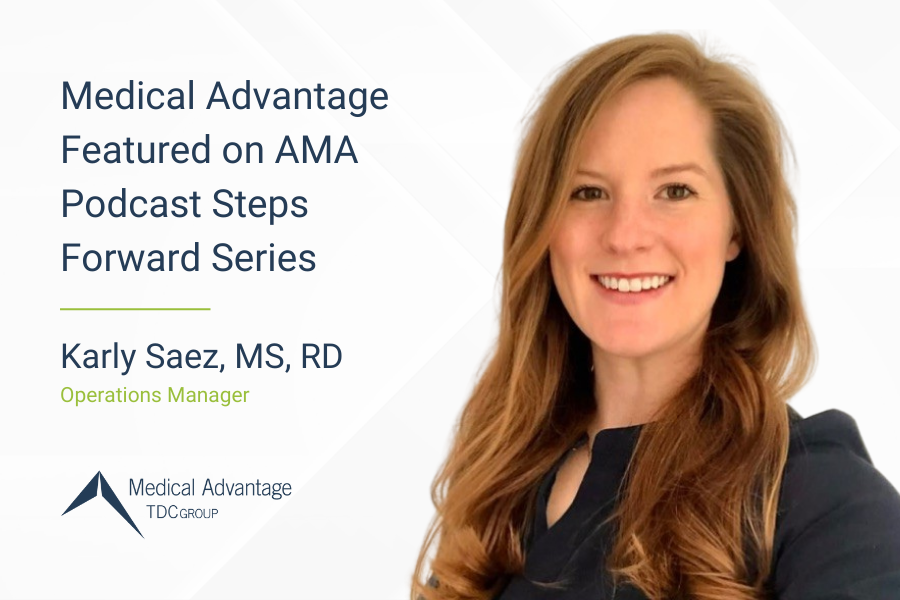At Medical Advantage, we are dedicated to empowering healthcare professionals who are making a difference in their communities. As we celebrate National Medical Group Practice Week in the fourth week of January, we acknowledge the invaluable contributions of these professionals year-round.
For medical groups striving to enhance performance in 2024, we recommend a comprehensive review of the following three key areas in practice management.
Successful Quality Program Reporting
Healthcare reporting plays a vital role in bridging gaps in care, ensuring high-quality outcomes. The ability to track patients’ treatment and consultation records empowers providers to proactively engage with them before reporting deadlines. By doing so, healthcare organizations will enhance reimbursements while improving patient care. Read more here about the changes to the MIPs reporting program for 2024.
In addition to helping close gaps, compiling comprehensive reports provides invaluable insights into patient outcomes and financial health. Robust healthcare reporting enables organizations to optimize reimbursements, avoid penalties, and discover areas for improvement as they review and scrutinize 2023 metrics.
Paying particular attention to exception reports will highlight missing or inaccurate data. By identifying troubling trends—like an increase in emergency visits or readmission rates—practices can implement effective interventions. Taking the time to assess these reports and promptly take action will help minimize costs and drive better outcomes in 2024.
Effective Benchmarking to Track Performance
When evaluating your practice’s performance, utilizing benchmarks is crucial. While the Centers for Medicare & Medicaid Services (CMS) does provide its own benchmarks, incorporating private sources can offer more relevant and comprehensive data for benchmarking against peers in the industry.
Private sources for practice benchmarks provide valuable insights into shifts in medical practice ownership, physician payment methods, and practice arrangements. These sources allow practice groups to compare their performance with similar practices, define goals and metrics, and make informed decisions regarding workflows and actions.
As preparations begin for the 2024 quality program metrics, workflows, and actions, it is essential to leverage these private sources to gain a comprehensive understanding of how your practice measures up against industry standards. Annual provider and staff training should also be conducted to ensure all members of the practice are well-informed and aligned with current quality program requirements.
By combining the benchmarks provided by CMS with those from private sources, practice groups can obtain a holistic view of their performance and identify areas for improvement. This allows for more targeted efforts in enhancing patient care, optimizing practice operations, and achieving better outcomes.
Improving Operations Through EHR Optimization
To maximize operational efficiency, the new year is the perfect time to take a fresh approach to your EHR. Start by setting specific goals for your EHR in 2024, including new metrics for tracking and measuring performance. Consider engaging a professional EHR consultant who can help unlock the full potential of your system, leading to improved user satisfaction among providers, staff, and patients alike.
Practices also should ensure that their EHR is up to date. Outdated equipment can slow down an EHR, leading to frustration for staff and patients alike. IT managers or IT vendors can help improve EHR performance by removing unnecessary programs running on devices and internet speed.
When evaluating your EHR, it is important to ask yourself, “Am I fully leveraging the capabilities of my EHR?” If the answer is no or uncertain, it may be time to consider optimizing your system. There are several areas where improvements can be made, including:
- Enhanced, prepopulated templates to streamline repetitive tasks
- Virtual assistant features that enable users to verbally command actions while interacting with patients
- “Favorites” list to minimize unnecessary clicks
- Automation and interoperability enhancements
Staff training is crucial to maximize the potential of your EHR. Even experienced users can benefit from a refresher. If you plan to optimize your EHR in 2024, it is important to update your training materials accordingly. An EHR consultant can offer valuable assistance, saving your time and effort. For more information on best practices for EHR training, read here.
EHR Integration to Streamline Billing
EHRs not only enhance patient care but also serve as valuable tools in managing billing processes. By optimizing billing and claims workflows, practices can minimize revenue losses. Start by assessing open encounter reports to identify progress notes that require completion or finalization for claim creation.
Accurate and timely creation of claims is crucial. Leverage your EHR to reduce manual data entry, improving overall precision. Additionally, reporting functionality aids in monitoring billing workflows, ensuring comprehensive oversight.
Conducting reviews will help to address and take action on pending claims. If your current EHR lacks denial management reporting for tracking claim denial trends, consult your vendor or an EHR expert to optimize this functionality. Proactively identifying and mitigating recurring issues will help prevent future escalation of these trends.
Leveraging AI to Enhance Patient Care
In the ever-evolving landscape of health IT, generative AI has our teams buzzing with excitement. The potential of AI to revolutionize healthcare by producing novel insights, predicting outcomes, and enabling personalized medicine feeds our fervor for innovation. With new AI enhancements, providers can leverage vast amounts of data to uncover patterns and develop treatments tailored to each individual patient. This technology not only promises to improve patient outcomes but also can accelerate medical research, enhance diagnostics, and optimize healthcare delivery.
Celebrating Our Rewarding Partnership with Medical Groups
Medical Advantage has decades of experience providing healthcare analytics, technology, and consulting support for healthcare professionals. We love to see medical groups succeed and build upon that success into the future. From EHR optimization and training to billing and revenue cycle management, we look forward to providing solutions that will ensure practice success in 2024 and beyond.





